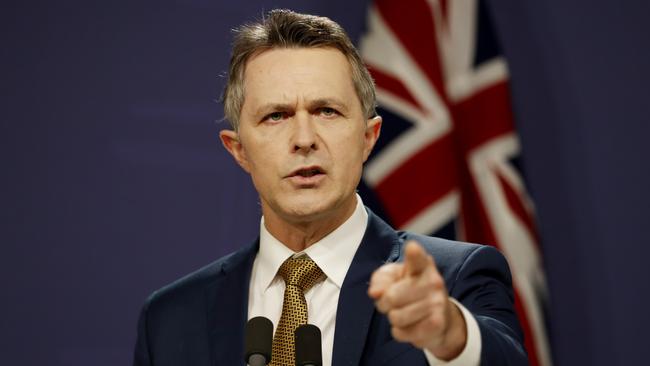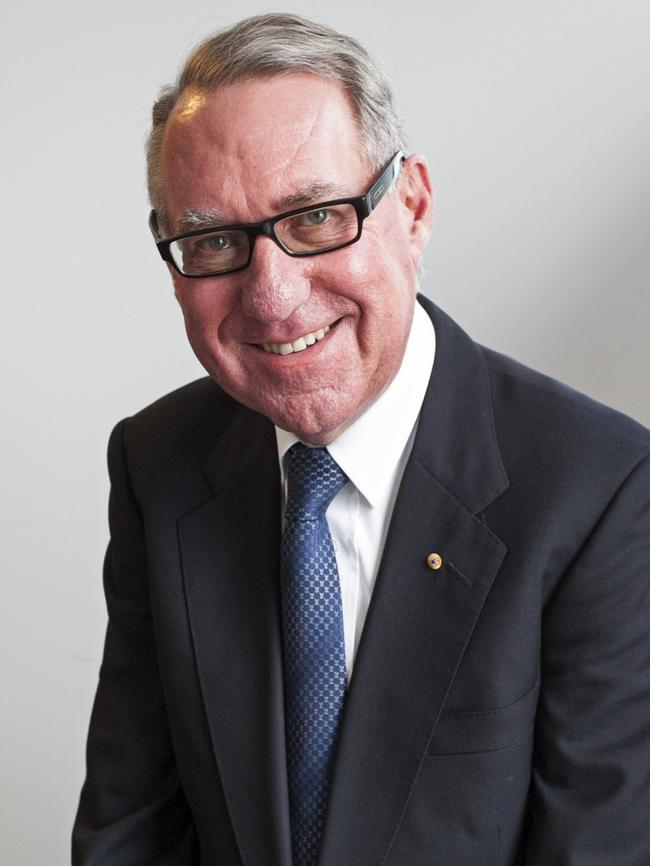David Gonski and Jason Clare demand ‘better targeting’ of schools funding
David Gonski, the architect of needs-based funding to schools, has thrown his weight behind Jason Clare’s call to better tailor funding to children most in need.

Federal Education Minister Jason Clare has demanded “better targeting’’ of taxpayer funding to help disadvantaged students who are falling behind at school.
And University of NSW Chancellor David Gonski, the architect of needs-based funding to schools, threw his weight behind the new minister’s call to better tailor funding to children most in need. Mr Gonski, whose advice to the Rudd and Gillard governments resulted in funding increases to schools with more disadvantaged students, said schools did not necessarily need more money. “The funding is just fine,’’ he told The Australian. “The question is, what do you do with the money?’’
Mr Gonski’s rare public intervention came as Mr Clare condemned the lag in learning among Australia’s most disadvantaged students, despite billions of dollars being poured into schools for equity programs over the past decade. “I don’t want this to be a country where your chances in life depend on who your parents are, where you live or the colour of your skin,” Mr Clare told The Australian yesterday. “If we’re honest with ourselves, we are at the moment.”

Mr Clare was responding to anew Productivity Commission report revealing children with poor or low-educated parents, students with a disability and First Nations children are trailing their classmates in literacy and numeracy. The report cites National Assessment Program – Literacy and Numeracy (NAPLAN) data showing that 5 per cent of all students failed to meet the national minimum standard for literacy last year, while 4 per cent failed to meet numeracy standards.
“This is serious,’’ Mr Clare said.
“The NAPLAN data shows there have been improvements in primary school in reading and maths, but not for kids from low socio-economic backgrounds or from regional areas. We need to think about how we can better target the money we give schools to help these kids.” Mr Gonski said Mr Clare’s comments were “correct’’. “I think good work has been done to fix the funding in schools, and the direction he’s talking about is the correct way to go,’’ he said. Mr Gonski, who is chairman of ANZ and Coca-Cola Amatil and one of Australia’s best-connected business executives, drew up Australia’s needs-based funding model that gives schools bonus funding for students with disadvantage or disability.
Federal opposition education spokesman Alan Tudge also declared yesterday that “funding is not the issue’’. He called on Mr Clare to insist universities used “evidence-based practices’’ to train teachers, and to tie the $760m in federal funding to university education faculties to a requirement to produce high-quality teachers.
“The government should fulfil the Coalition’s commitment to develop new micro-credentials in classroom management, phonics and explicit teaching to support teachers who have been let down by their training,’’ Mr Tudge said.
The Australian Education Union yesterday called for private schools to be stripped of funding at a faster rate than the 10-year schedule to recalibrate funding based on a student resourcing standard that is tied to student household income instead of school postcodes.
As state governments fail to keep up with their commitment to fund 80 per cent of the SRS, AEU deputy federal president Meredith Peace said the “overwhelming majority of public school students in Australia are missing out on an average of $1800 in funding per student every year’’. “Public schools need their fair share of funding to deploy more resources to support students and reduce teacher workloads,’’ she said.
Mr Clare said the Albanese government’s first budget, to be handed down next month, would fund Labor’s election promise to provide $40,000 bursaries for 5000 students to study teaching at university.
Mr Clare called for trainee teachers to be paid to work part-time in classrooms.







To join the conversation, please log in. Don't have an account? Register
Join the conversation, you are commenting as Logout